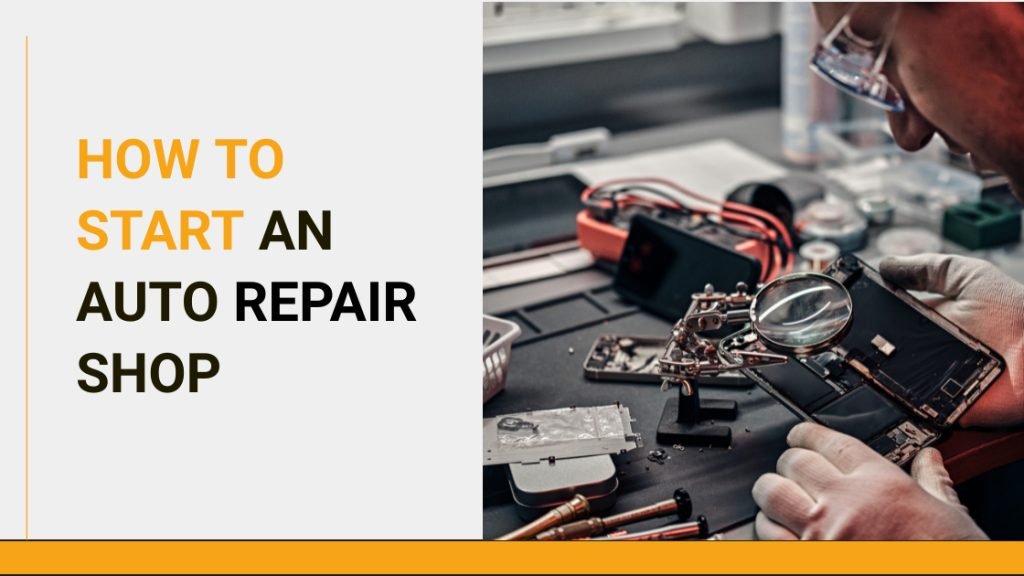
If you love cars, you might enjoy working as an auto mechanic. You get to fix and tune up vehicles, find out what’s wrong with them, and make sure they run smoothly. But being an auto mechanic is not all fun and games. It can also be dangerous. You must deal with tools, chemicals, and machines that can hurt or make you sick.
These occupational injuries are normal in some cases but not in most. For example, it cannot be considered normal in case of a loss of limb, right? Also, dealing with hazardous chemicals is not normal at all!
In this article, we will talk about some of the most common injuries that auto mechanics get and how you can avoid them or get help if they happen to you.
Types of Injuries
According to the Occupational Safety and Health Administration (OSHA), automotive technicians are more likely to suffer injuries than the average worker in the private sector. Some of the most common types of injuries are described below:
1. Eye injuries
As an auto mechanic, you often have to work with fluids, such as oil, coolant, brake fluid, and transmission fluid, that can splash or leak into your eyes. You also use power tools, such as drills, grinders, and electric metal shears, to produce sparks or flying debris. Eye injuries can range from minor irritation to severe damage that can cause blindness.
But you can prevent such injuries; always wear safety goggles or glasses when working with fluids or power tools. Eyes are precious, so cannot take risks with dangerous chemicals and fluids.
2. Burn injuries
Heat burns, in my opinion, are the worst ones. It seems to me a hard job that you are exposed to various heat sources, such as engines, exhaust pipes, radiators, and welding torches. You can also come into contact with chemicals that can cause chemical burns, such as battery acid, antifreeze, and caustic cleaners.
Burn injuries can cause pain, scarring, infection, and disability. So prevention is better than cure!
When working with hot or hazardous substances, you should wear gloves, long sleeves, and protective aprons.
3. Musculoskeletal injuries
If you are an Auto Technician, then it will be impossible to say there is no heavy lifting. You often have to lift heavy objects like tires, batteries, and engine parts. You may also have to work in awkward positions, such as under the hood or under the car. These activities can cause overexertion, sprains, strains, fractures, and hernias.
Musculoskeletal injuries can affect the back, neck, shoulders, knees, and wrists.
To prevent musculoskeletal injuries in any of workplace accidents, you should use proper lifting techniques, ergonomic tools, and mechanical aids when possible.
4. Repetitive motion injuries
Auto mechanics know the hassle that they have to perform many tasks that involve repeated movements of the hands, arms, or fingers. These tasks include turning wrenches, screwing bolts, cutting wires, and hammering nails. Repetitive motion injuries can cause inflammation, pain, numbness, tingling, and loss of function in the affected areas.
Repetitive motion injuries can affect the elbows, wrists, hands, and fingers. To prevent repetitive motion injuries, you should take frequent breaks, vary your tasks, and use tools that reduce vibration and force.
5. Crush injuries
As an Auto mechanic, you work with heavy equipment and machinery that can crush or pinch your body parts. These include jacks, lifts, hoists, presses, and hydraulic systems. Crush injuries can cause severe damage to the bones, muscles, nerves, blood vessels, and organs. Crush injuries can result in amputation or death.
But it can be prevented, gentlemen! You should follow safety procedures when using equipment and machinery and never place any part of your body under a vehicle or a heavy object to avoid any fatal injuries.
Compensation for Injuries
If an auto mechanic suffers a work-related injury or illness, then they may be entitled to workers’ compensation benefits. Workers compensation is a system that provides medical care, wage replacement, and disability benefits to workers who are injured or sick because of their jobs. It also protects employers from being sued by injured workers.
To receive workers’ compensation benefits, you must immediately report their injury or illness to their employer and file a claim with the workers’ compensation insurance company. The claim must include information about the injury or illness, how it happened when it happened, and what treatment was received. Medical records and evidence must also support the claim.
Workers’ compensation benefits may vary depending on the type and severity of the injury or illness,
the state laws, and the insurance policy. Some of the benefits that an auto mechanic may receive are:
1. Medical benefits
The medical benefits that an injured auto shop worker include:
- Costs of Medical Treatment
- Doctor Visits
- Hospital Stays
- Surgery
- Medication
- Rehabilitation
It also covers the cost of transportation to and from medical appointments, which must be very relieving in such times of emergency.
2. Wage loss benefits
Workplace hazards require medical attention, and that can lead to absence from work in most cases. To address this, wage loss benefits are there to solve the problem.
In this benefit, the portion of lost income is replaced. These are usually calculated based on the percentage of the worker’s weekly wage before the injury or illness. Hard work pays off sooner or later!
3. Disability benefits
These compensate for the loss of earning capacity due to injury or illness. Disability benefits are usually classified as temporary or permanent and partial or total.
- Temporary disability benefits are paid until the worker recovers or maximizes medical improvement.
- Permanent disability benefits are paid if the worker cannot return to their previous job or any other suitable job.
- Partial disability benefits are paid if workers can return to work with reduced hours or wages.
Total disability benefits are paid if the worker cannot work at all.
4. Death benefits
Death benefits may include funeral expenses, burial costs, and a lump sum or weekly payments to the spouse, children, or other eligible relatives.
When can an auto mechanic file a lawsuit?
Do the auto technicians have the right to file a lawsuit? Well, yes! In some cases, an auto mechanic may also be able to file a personal injury lawsuit against a third party who caused or contributed to their injury or illness. A third party could be a manufacturer of a defective product, a driver of another vehicle, or a subcontractor of another company. A personal injury lawsuit may allow the auto mechanic to recover additional damages, such as pain and suffering, emotional distress, and punitive damages.
To file a personal injury lawsuit, an auto mechanic must prove that the third party was negligent or reckless and that their negligence or recklessness caused or worsened the injury or illness. A personal injury lawsuit must also be filed within the statute of limitations, which is the time limit for bringing a legal action.
Because worker’s compensation and personal injury claims can be complex and challenging, it is advisable for an auto mechanic who suffers a work-related injury or illness to consult with an experienced worker’s compensation attorney or a personal injury lawyer. An attorney can help the auto mechanic understand their rights and options, gather and present evidence, negotiate with the insurance company or the third party, and represent them in court if necessary.
An attorney can also help the auto mechanic obtain the maximum compensation they deserve for their injury or illness.
Conclusion
So, as an Auto Mechanic, you risk your life by using heavy tools and dealing with dangerous machinery daily to fix someone’s favorite car. Wearing protective gear and safety glasses and taking all mandatory precautions to stay safe is important.
Accidents cause injuries, and the garage floor needs to be organized to avoid such mishaps, but if anything wrong happens, you have all rights to claim the benefits you are eligible for!



